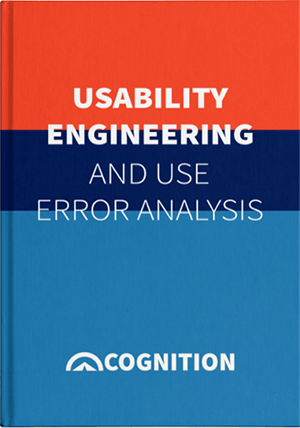Cognition Blog
Our blog navigates product development and compliance for the life science industry. Our solutions save time and money, delivering products with less risk.

By:
Cognition Corporation
November 27th, 2019
There are many immediate short-term benefits a compliance software tool can provide to your life science organization: improved documentation, streamlined day-to-day compliance activities, project data unification, and other advantages. But there are many important long-term benefits that may get overlooked. When deciding to adopt these software tools, it’s important to understand how they can promote growth and innovation at your company.

By:
Cognition Corporation
November 21st, 2019
The market for digital health products is rapidly expanding. Reports from Global Market Insights, Inc. project the value of this marketplace to expand to $504.4 billion by 2025. Many life science organizations have seen the opportunity these technologies can provide and are jumping at it. However, this boom in the industry has not gone unnoticed; in recent years, FDA has been rapidly transforming their policies and organization to handle the necessary regulatory work these digital health products bring to the table.

Subscribe to the blog and get this guide for free

Product Development | Thought Leadership | Risk Management
By:
Cognition Corporation
November 19th, 2019
Your product’s intended patients have a wealth of experience and information that can be valuable to your development process. Whether it’s the day-to-day realities of the condition, the symptoms they feel need the most attention, or things they might be missing in their current treatment regimens, this data cannot be elicited from doctors and engineers alone.

By:
Cognition Corporation
November 14th, 2019
FDA Form 483 Inspectional Observations are one of the many tools the agency uses to verify medical device products do not expose users and patients to undue risk. Many of the commonly cited observations involve some aspect of design controls regulations, which is of particular concern for development teams and manufacturers. Of the 438 inspectional observations in FY2017, FDA cited three design controls regulations more commonly than all others:

By:
Cognition Corporation
November 12th, 2019
Deciding to adopt a compliance software tool is not always a straightforward process. There are a number of aspects that need to be addressed—potential quality system issues, user adoption, and so on. Despite these concerns, however, there are some clear benefits to software adoption that should be taken into account. From improving documentation to establishing greater accountability, there are four distinct reasons to consider adopting compliance software.

Thought Leadership | Industry Updates
By:
Cognition Corporation
November 7th, 2019
By May 2020, the new European Union Medical Device Regulation (EU MDR) will be fully implemented. Medical device manufacturers now need to comply with a set of new and critically important regulations. While this deadline is fast arriving, there is still time to plan ahead. To make that planning as effective as possible, there are several key approaches your organization should think about taking.

By:
Cognition Corporation
November 5th, 2019
There are many reasons why life science organizations choose the Cognition Cockpit Platform for their design controls and risk management activities. Cockpit’s numerous functionalities and features have been deployed by businesses large and small, and to great success. But what were the deciding factors for those organizations, and do they make sense for you?

design controls | Thought Leadership
By:
Cognition Corporation
October 29th, 2019
Do you want to improve your design controls documentation? If so, the first step is to evaluate how your current processes and procedures are working and how effective their results are. To work through this process, there are six important questions to ask, ranging from your design outputs and risk management to the current state of your product data across multiple sites. Answering these questions thoroughly and honestly can empower greater levels of design controls compliance in your premarket submission activities.

By:
Cognition Corporation
October 24th, 2019
Generating and managing your compliance documentation for premarket submission takes a lot of time and effort. And when there are inconsistencies or other major issues, especially when it comes to design controls, a number of adverse effects could impact your organization. From time lost to remediation to delays to market, it can seriously cost your life science organization. To combat these issues, you can use a number of tactics to improve your design controls documentation.

info@cognition.us
1 (781) 271-9300
24 Hartwell Avenue,
Lexington, Massachusetts 02421
©2026 Cognition Corporation | Privacy Policy